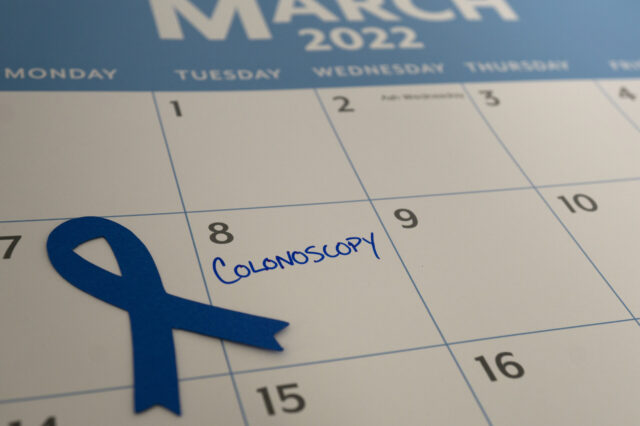Steps for Preventing Colorectal Cancer in Young Adults

Colorectal cancer is occurring far more often in those under 50 — a trend that’s held for the last decade.
With regular screenings, however, the cancer is both preventable and highly survivable. That’s the message of March’s National Colorectal Cancer Awareness Month.
“In 2010, only 5% of patients diagnosed with colon cancer were less than 50 years of age, a group we call young adults. The numbers are worse now. In 2020, approximately 11% of new colorectal cancer diagnoses were young adults. In addition, incidence rates are increasing by 2% a year in this population. The bottom line is that more youthful people are getting colon cancer each year, and we do not know why,” said Jesus Fabregas, MD, MPH, FACP, a UF Health colorectal and gastrointestinal medical oncologist.
While many factors are potential causes, Fabregas said, no direct reason has been established. Obesity, sedentary lifestyles, smoking and diets that include a lot of red meat and alcohol are potential risk factors. However, patients who are active and otherwise healthy still present at a young age with colon cancer.
“Other studies have alluded to the microbiome, the collection of bacteria in our intestines, sometimes called gut health, as a potential factor. Moreover, we know that diet and exercise influence our immune system and microbiome. Likely, a complex interaction between these factors might be the key to seeing more cases in the young population,” said Fabregas.
Symptoms of colorectal cancer include changes in bowel habits, abdominal discomfort, unexplained weight loss, rectal bleeding and fatigue. However, these symptoms are similar to those of other conditions, and sometimes patients initially overlook them. Often, by the time they go in for evaluation, the cancer has advanced.
Fabregas said UF Health offers many tools to deal with colorectal cancer. One is screening, which allows doctors to detect cancer earlier, making it easier to cure.
Because of the increase in incidence in young adults, in 2018, the American Cancer Society changed its guidelines to call for screening patients at age 45. In 2021, the United States Preventive Services Task Force also now suggest that adults have colonoscopies at age 45. Additionally, for patients with a close relative who’s had colon cancer, the screening should start 10 years before the cancer was diagnosed in the family member, or at age 45, whichever is earliest.
“I am convinced that early detection is the best tool we have so far to deal with this disturbing trend of colon cancer affecting young patients,” Fabregas said.
To schedule a colon cancer screening, please consult your primary care physician. Learn more about colorectal cancer and colonoscopy screenings on the UF Health GI Oncology Center website.